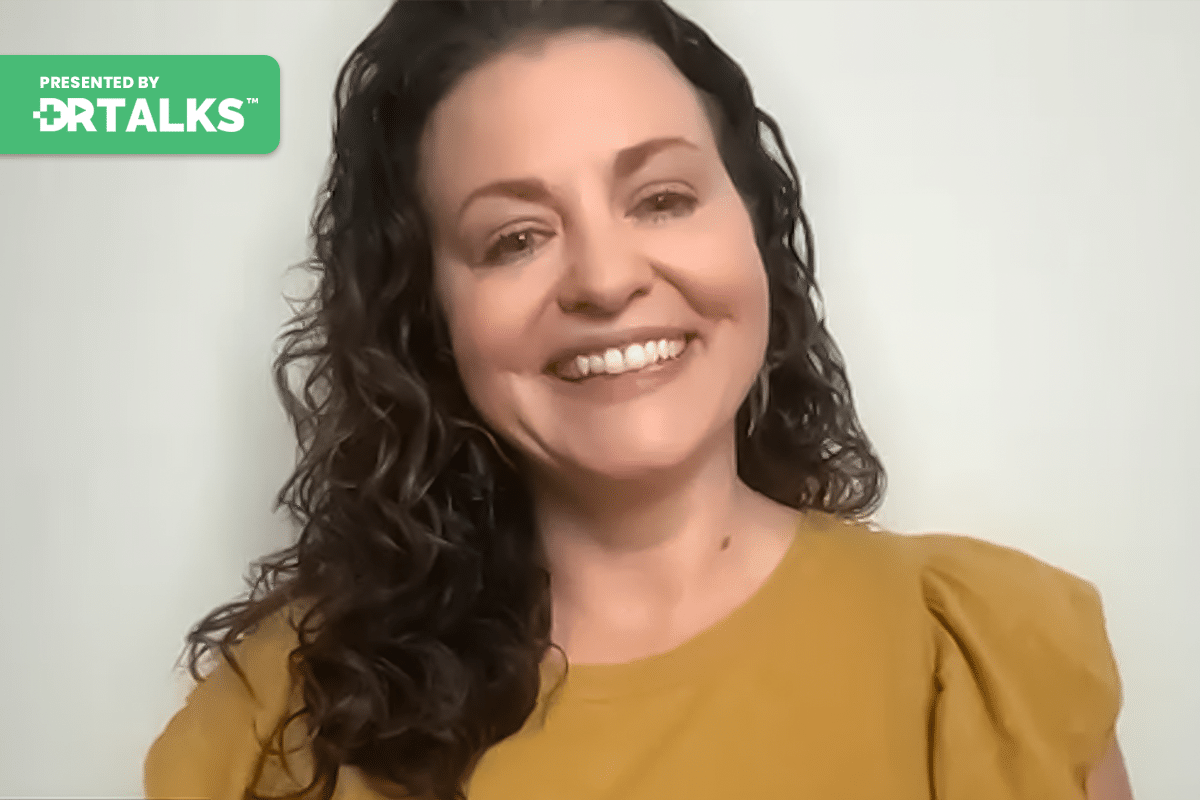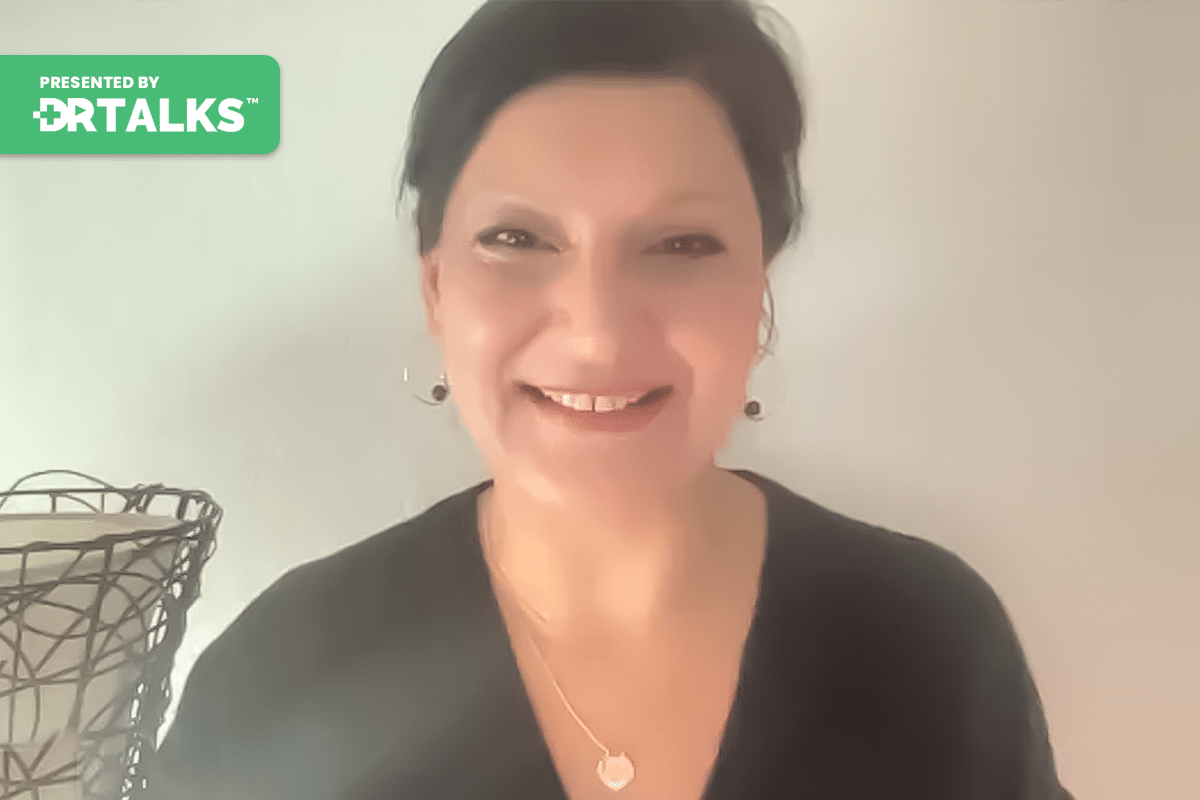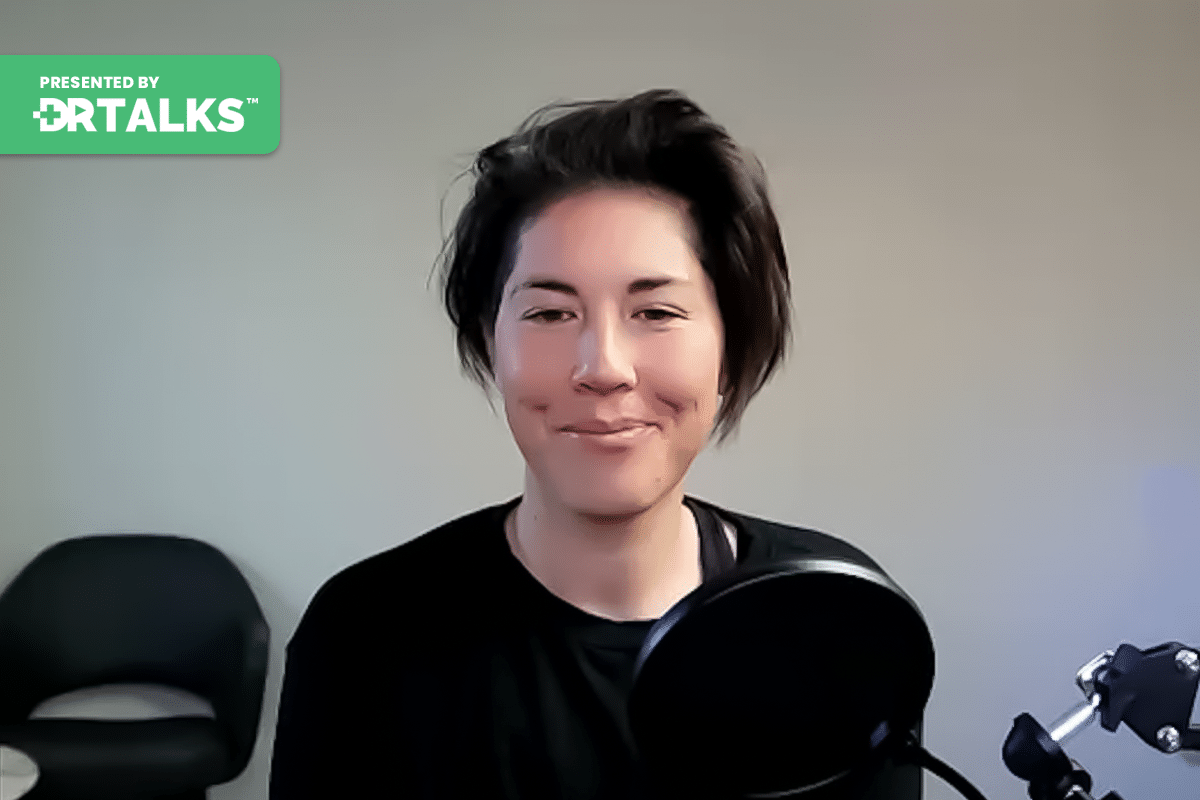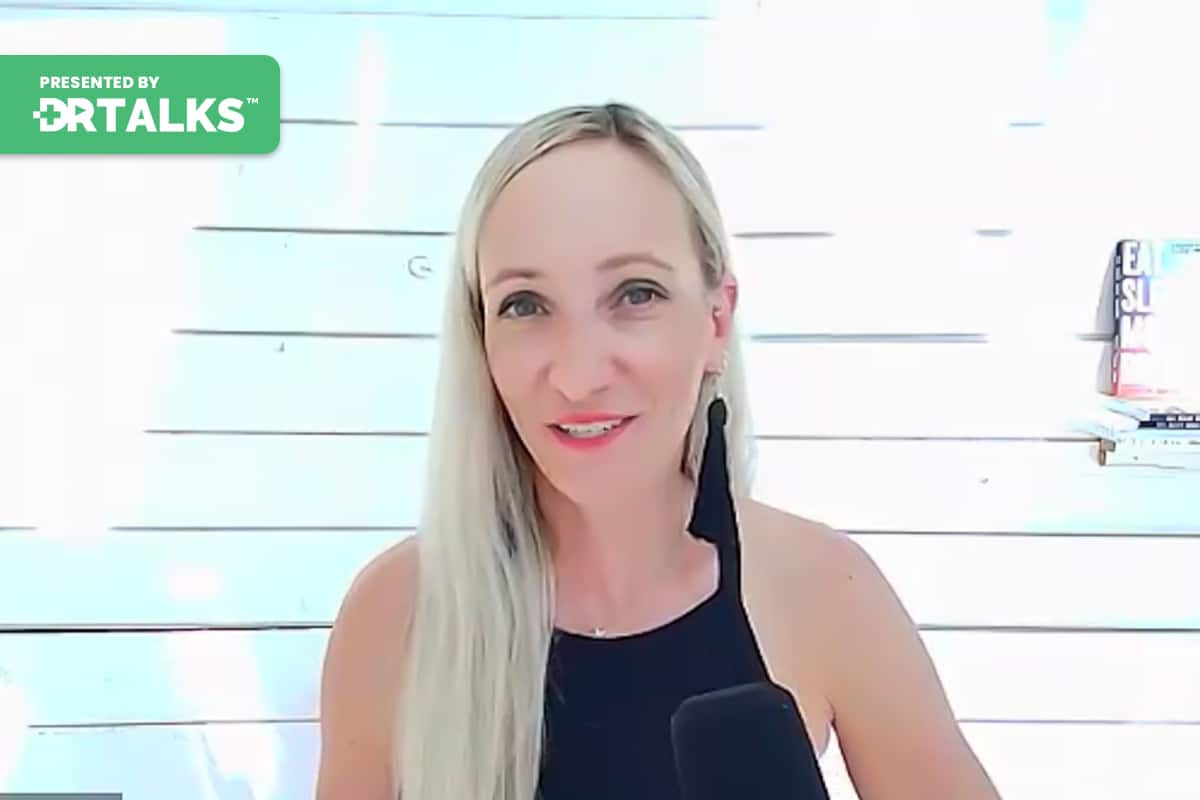Join the discussion below
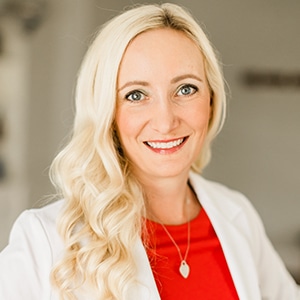
Dr. Jenny Pfleghaar is a double board certified physician in Emergency Medicine and Integrative Medicine. She graduated from Lake Erie College of Osteopathic Medicine. She is the author of Eat. Sleep. Move. Breath. A Beginner's Guide to Living A Healthy Lifestyle. Dr. Jen is a board member for the Invisible... Read More
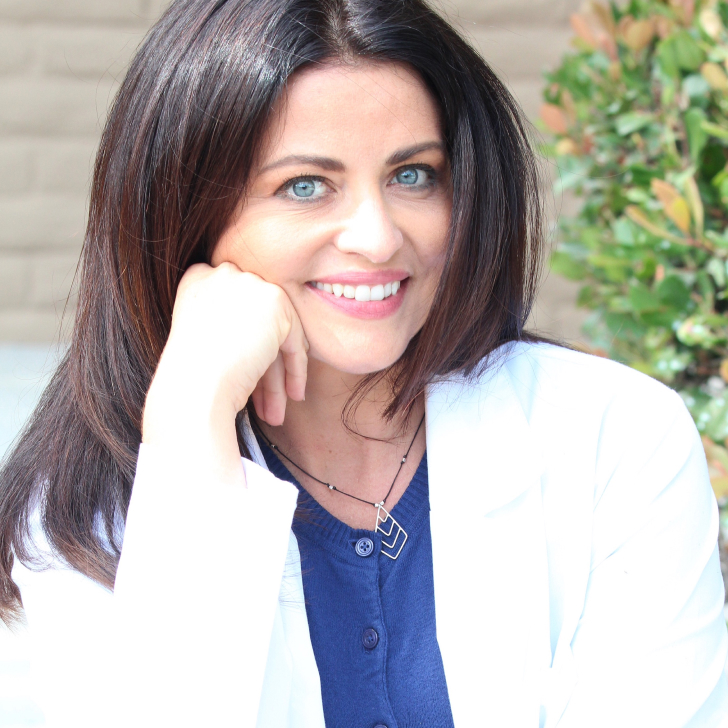
Dr. Jessica Peatross has a passion for uncovering the mystery behind the chronic illness, whether that be stealth infections, heavy metals, stress, trauma or other environmental toxicities. She is visionary for the future of healthcare and left her position as a board-certified, internal medicine hospitalist to pursue Functional Medicine in... Read More
- Understand the likelihood and risks of water damage in homes
- Learn about the pathogens and toxins commonly found in water-damaged homes
- Know the potential link between these factors and autoimmune thyroid conditions
Jen Pfleghaar, DO, FACEP
Hello. Welcome back to the Heal Your Thyroid and Reversing Hashimoto’s summit. Today I’m really excited to talk to the expert about this topic, Dr. Jessica Peatross. She is an M.D. and she has such a passion for uncovering the mystery behind chronic illnesses. She has a bunch of awesome protocols for dealing with things like mold and Lyme and stealth infections and she gained a lot of following with her Kilbey and sweat method. So today we’re going to talk about water damage, homes and autoimmune thyroid conditions. So, Dr. Jess, welcome. So I’m so excited to talk to you today. Tell us a little bit about how you got into this type of medicine.
Jessica Peatross, MD
Absolutely. So that’s a wild ride, actually, and a story. A long story, but I’ll keep it short. So I trained at Internal Medicine, I was board certified, and I worked as a hospitalist for almost seven years before I started to kind of ask questions. And, you know, everything wasn’t sitting well with me. How many people I was discharging from the hospital on turns, double digit medications and all the different the sugar and Coke and Pepsi and Frito-Lay, these type of contracts in the hospital to feed sick patients didn’t sit well with me. And so I decided to jump ship and really get trained in functional integrative medicine. So I’ve trained now in Gerson Therapy and ozone therapy and neutral genomics and some other things too. I also attended the Institute of Functional Medicine, so now I really work to get to the root cause for people and figure out why they need this medication and see if we can get them off of it rather than keep them on it as a Band-Aid for years.
Jen Pfleghaar, DO, FACEP
Yeah, it’s so exciting to see medicine actually working. I think in medical school we have this thought like, Yeah, we’re going to go learn all this information, we’re going to fix everyone and this drug is going to fix it. And then when I was out practicing in the real world, I was like, Oh, and then I found integrative medicine and went back. But it’s also great to have the medical school knowledge because you need that as the base. So it’s kind of a natural progression.
Jessica Peatross, MD
You know, it really helps to understand where root causes come from and to ask questions beyond the label that we give people. Because I can’t not medical school, you know, if I had an emergency situation or, you know, a lot of the basic concepts I learned in physiology, anatomy, all those different subjects really laid the ground as I know you know what I’m talking about, laid the groundwork for understanding how to how to ask questions beyond labels. Really.
Jen Pfleghaar, DO, FACEP
Yeah. So let’s talk about water damaged homes and buildings, too, because sometimes I’ll see this. It’s not the home, it’s the workplace. So how common are they and why are they such a big deal?
Jessica Peatross, MD
So. So I’m sorry. Say that question again. Yes, sorry.
Jen Pfleghaar, DO, FACEP
Why are water damaged homes such a big deal and how common are they?
Jessica Peatross, MD
So what are damaged homes are actually way more common than people think. I think this is just now starting to come onto people’s radars. And so a lot of the studies show that almost 43% of current homes have water damage and over 80% have previous water damage. Somewhere in the home’s history. And that’s those are huge numbers. And we also know that about 20% of the population has a genetic predisposition. So if they’re around, you know, water damage homes, they either contain gram positive bacteria like pectin in my studies, gram negative into toxic bacteria or mold growth. But they’re going to be a little more sensitive to that and maybe even real and get chronic conditions from those that situation in their home or workplace.
Jen Pfleghaar, DO, FACEP
Yeah the strange thing I have found is why aren’t they having like mold inspectors come in when people buy a new home? So I actually had a patient who recovered from mold illness. She was going to buy a new home and we had our local guy go to the home that she had purchased and check it out. And real estate agents, you know, I think this is like a missing thing. I was talking to my husband about this. I’m like, someone needs to be a mold expert, you know, real estate company, because you can move into this million dollar new build and there could still be mold, right?
Jessica Peatross, MD
Absolutely. And that’s what people don’t understand. They say I doubt there’s water damage or mold in my home. It’s really a new home. And what I want people to know is sometimes it’s where the home is built. So if you build somewhere that where there’s rising damp, that can be a problem. And even if it’s a new home, even air quality and air flow can be a problem in the home too. So sometimes it’s not just straight up moisture and water damage. It’s a problem with lack of airflow that allows these things to populate in the home.
Jen Pfleghaar, DO, FACEP
Yeah, I think the scary thing is also is that it can be behind walls or places where you just can’t visually see it. So that’s what makes it hard for some people. They’re like, Oh, I don’t have mold. And I’m like, Well, let’s it’s somewhere, you know, or it was a past exposure.
Jessica Peatross, MD
Correct? And a lot of these things, when you think of water damage or mold, you think of these big black spots on the ceiling and you smell it. It’s very obvious and you’re lucky if that’s the case. And fortunately, like you mentioned, it’s usually hidden under baseboards, behind walls, behind appliances. And we don’t always smell it, not always.
Jen Pfleghaar, DO, FACEP
Yeah, it’s very crazy. I know. I can smell it now. I was looking at a new place for my office and we walked in and I was showing everyone it and there was a leak and the walls were like falling in and out. Like, we had just been there a week before. And I’m like, Seriously? I’m like, well, we definitely can’t be here because to remediate this would be so expensive and it was a rental property. So yeah, it definitely had to be careful. So when we look at water damaged homes, what exactly are the pathogens that we’re concerned about? You spoke a little bit about them. Can you go into detail, please?
Jessica Peatross, MD
Sure. So for a long time, mold has been on our radar. I think it’s been the trendy thing to talk about. And I am really grateful for Dr. Ritchie Shoemaker’s research because he dives deep into what is really affecting our genes and what is really the problem in these water damaged homes. And so what he’s found out recently is it’s more of a gram positive bacteria that comes from the soil and it really flourishes around. Moisture is active in my studies, which is actually gram positive bacteria. We didn’t really expect that. And then what’s second most common in affects people is gram negative endotoxin bacteria. And these are bacteria that produce these byproducts that are pretty toxic to our DNA called endotoxin. They can bind our DNA accrues reactive oxygen species really cause problems with a lot of different chronic issues and labels that we have out there. And it comes from the Lipopolysaccharide in their cell wall. So this is where the toxin comes from. And then lastly, which I was surprised about, was mold really affecting people? So although we talk about it a lot, it could be the bacteria that is also able to grow in is same kind of lack of airflow, high moisture conditions.
Jen Pfleghaar, DO, FACEP
Yeah. And the problem is, is not a lot of people talk about this, right. You’re not going to go to your primary care doctor and say, hey, is there something in your environment that’s making you sick? You know, oh, no, wait, you’re just depressed. Well, here’s the loss I had.
Jessica Peatross, MD
But you’re right. It’s in. I just want people to know here, like something you they have a genetic predisposition. You may have, you know, maybe I like to call them predispositions, lax things like that in the DNA. But really what activates those or turns them on is the environment and the lifestyle you’re living.
Jen Pfleghaar, DO, FACEP
Yeah. So how exactly do genetics and environment merge with autoimmunity?
Jessica Peatross, MD
That’s a great question. I actually think autoimmune conditions are sort of the perfect example of a nature and nurture environment between type of relationship. You know, Hashimoto’s is one of the more common, if not the most common autoimmune condition out there. So there’s something about this group of people where they have possibly a genetic predisposition. And I like to say it’s like load loading the gun and then pulling the trigger is the environment. So stress, you know, standard American diet, you know, pathogens, different industrial, manmade toxicities, heavy metals, all of these things help to activate a genetic predisposition. So I would say if someone asked me that environment and lifestyle is most important, right? Just because you have the gene doesn’t mean it’s active or turn on or off or whatever. That negative predisposition is for your genes. The good news about all this is, is that if environment and lifestyle can change our genes negatively, then they have the potential to reverse and change things positively as well. So I want everyone out there to know it’s not a life sentence that you have a certain label right now, because it’s very important the thoughts you think the food you eat, the water you drink, how much you sleep and how you live your life every day.
Jen Pfleghaar, DO, FACEP
Yeah, I love that. And I had to tell someone, a patient yesterday. She came in just to, like, make sure she was healthy. You know, she had no complaints. And we got our lab work back and we found insulin resistance in a new diagnosis of Hashimoto’s. And I think she was just kind of shocked because she came in with really no complaints, just, you know, just want to make sure. Yeah. And, but then we actually we going through her environment and I’m like, hmm, she had some mold in the house like, well, water damage. And I’m like, if there’s water damage, there’s probably mold. So she’s going to have her house looked at. We’re going to heal her gut. And I’m like, Don’t worry about this, because her face looked like shell shocked. I’m like, Don’t worry about it. This is so Hashimoto’s is the most common autoimmune disease in women. We just have to reverse it. We have to remove what is irritating the heck out of your body. And like you said, if she was pre-disposition for those genetic changes and then her environment pulled the trigger and a lot of times postpartum this happens. So much stress, no sleep.
Jessica Peatross, MD
Yeah, it’s. It’s true. She’s lucky to have you, doctor. Urgency, right? So she’s lucky to have you as vets. That’s perfect. Not many doctors out there would say, okay, what’s your lifestyle like? Tell me about your day. Oh, man, you might have had a leak in your house. You know, you just had a baby. It’s all these things. You provided hope for her. Instead of saying it’s in your genes, you can’t do anything. No, we’re going to fix this. Here’s why.
Jen Pfleghaar, DO, FACEP
Yeah, and that is such an important part because, you know, we’re going to talk about trauma next and what role trauma plays in all this. But I think, like you said, it’s like medical seeing kind of giving a diagnosis and then that diagnosis becomes the person. So let’s talk about traumas role in all of this.
Jessica Peatross, MD
So I can’t beat this drum enough. I can’t. I say it louder for the people in the back. The body keeps the score. The body does not forget. And even though your conscious mind may have forgotten that horrible thing that happened to you between the ages of six and eight, your body doesn’t forget. Your cells do not forget. And for many people that gets stored inside the body in different organs, everything is energy and you have certain ways that your body remembers things. For example, the nervous system. If the neurons fire together, they wired together. And what that means is if you can get into a certain thought pattern or a certain habit, then it’s almost like a truck is stuck in the mud and can’t get out. And your neurons start to fire a certain way and actually hardwire. And so sometimes trauma can hardwire us towards being in what is called dorsal vagal tone or flight or sight. And that is feeling. When your younger experiences make you not feel safe in the world, they make you feel like the other shoe’s about to drop at any point in time, and you may not sleep. Essentially, you may have digestive issues. You there may be a number of ways that this can play out, depending on you and your genes. And so if you’ve had a really traumatic childhood or you have continued stress in your daily life that isn’t mitigated, it’s all about the perception of it. Then I really urge you to dove into nervous system regulation and trauma work and that hard stuff that no one wants to talk about because you have to feel it to heal it, and you can’t get it out of your body, especially if your voice was taken from you as a woman and then you have thyroid issues. If you weren’t able to speak your truth, right? That combined with industrial toxins, is a big reason that women have thyroid issues.
Jen Pfleghaar, DO, FACEP
Yeah, and I think this is hard sometimes a hard concept. I do have patients actually read the book. The body keeps the score to kind of prime them. It’s a really weird concept, but it’s it’s proven. I mean, our, our body keeps this stuff and it could be something like you said, it happened when you were a child or maybe you didn’t even know it happened and it’s still there. So trauma is sometimes I don’t know about the clients you’ve seen, but sometimes it’s the last thing, it’s the hardest thing for people to wrap their heads around. So now I like bringing up the first appointment and then I’ll bring it up the second appointment, and sometimes it will take them the fourth or fifth appointment to be like. I finally made that appointment for EMDR, or I finally looked into this. Right? I mean, it’s it’s so uncomfortable, right? It’s easier to take a supplement, but sometimes a supplement is not going to fix it.
Jessica Peatross, MD
And we’ve always been brainwashed, even as doctors, every single person in the United States especially, has been brainwashed to think a pill for every ill. And it’s like a knee jerk response that we have. What can I take to fix this? And sometimes it’s breaking the habit of being yourself as Dr. Judy Spence, I would say. And, you know, it’s really important to dig into that. And just some a little more science for everyone out there. If everyone’s for the adverse childhood events or the ACE score, there’s some really good research and published studies out there that are pretty solidified in science now, although we always ask questions. But they say the more adverse childhood events you’ve had, the more DNA methylation or methylation tags are put on your DNA, which changes the way the DNA is expressed, and it lends more towards mental illness and autoimmune conditions that people are hospitalized for later in life.
Jen Pfleghaar, DO, FACEP
And this is really what we should be looking at. Well, first, how to prevent those, but how to heal from those. And the cool thing is, there are so many different it’s not just talk therapy. They’re actually doing things that are going to process the limbic system differently. And that’s that primitive part of the brain that has been traumatized and help you heal. And we see stuff like this with like spontaneous healing and stuff like that.
Jessica Peatross, MD
We absolutely do. I mean, I have seen a couple miracles in my life concerning things that you just mentioned for sure.
Jen Pfleghaar, DO, FACEP
Yeah. So trauma is super important as we went over. So if people are listening out there, well, what are just some practical steps for healing? What could they do today to to start their body in this healing process?
Jessica Peatross, MD
You know, that’s a great question, because my thing none of my bag is to empower people and show them that their health is in their hands. So what can you guys do? First and foremost, I would advise people to check for water damage in the home with an environmental relative multi index test. This is a test, an early test developed by the Environmental Protection Agency. Now, it’s not used by them, but it’s developed by them. So if you go to someone who doesn’t really understand motor quality water damage, they may just get dust samples. Not a regular army test or hurts me test, which I recommend and you guys can order on your own. I recommend enviro bio mixed or real time labs are both great and that way you can check on your own and have a doctor maybe help you read it because they are a little confusing sometimes to read. The other thing I would advise people to do is look at their teeth and this is really important. I’ve seen habitations where wisdom teeth are removed, infected Asians, asymptomatic root canals and mercury actually replaced this iodine in the thyroid gland. So mercury fillings can be a problem as well. The other thing I would say is a good water filter and that’s because they use chlorine to clean the water supplies along with ozone. And chlorine, unfortunately, has byproducts that combine with some of the other things in the water supply can form things like perchlorate, which we know is a big hazard to the thyroid. And so just these couple things, there’s more as well. Stress is a big one to try and learn how to mitigate and perceive stress differently. But these are just three or four things that people can look into themselves, and you really might find more answers than your physician.
Jen Pfleghaar, DO, FACEP
Yeah, I think that’s so important. And these are, like you said, you could do them yourself, start investigating and you will find that, oh, you know, you’re talking to your parents and you’re like, oh, my gosh, I lived in the basement. In the basement was always wet. And maybe that’s when I started getting sick. Or, you know, once you look at your health history, you can start putting things together. And unfortunately, with the pandemic, that is really a lot of people stuff triggered around that I’m seeing also, which, you know, COVID has seemed to kind of bring out bring out these things that have been stirring, such as Lyme or co-infections. So, you know, if you’re really stuck, just write down your whole life history, I would say. Right. And you know, this is when I was sicker, this is when I got depressed. And where were you living and who is in your life and that kind of stuff.
Jessica Peatross, MD
It’s so good, you guys. I mean, this is what they teach doctors to do at the Institute of Functional Medicine. This is how you, Sherlock Holmes, your health is you literally what? Dr. Jen said you go back at a timeline of when, how, where you got sick, what the triggers, antecedents, initiators were. And I’m telling you, you can spend time on this and really figure some things out. They teach us doctors how to do this, and there’s no reason you can’t do it too.
Jen Pfleghaar, DO, FACEP
Yeah, no one knows their own body best. That’s one thing I’ve noticed, whether working in the air at my office, if someone says something is wrong, I know it’s something’s off. They then they’re right. And it’s. It’s your job to work with them, to work with your doctor, practitioner, whoever you’re seeing and find out. Find it out. And you well, don’t give up because some sometimes I think sometimes they’re slam dunks, but sometimes it takes a year, sometimes two years.
Jessica Peatross, MD
1,000%. You know, normally, guys, I will say with great conviction that if you have either graves or Hashimoto’s thyroiditis of the thyroid and you’ve had this problem for a while, there’s likely or I can say with certainty, a toxin, a trauma and likely a pathogen involved because there’s toxins there. So what I’m talking about is cleaning up the underlying terrain, which is your lifestyle and a body that somehow is hospitable to this condition. How can we fix that?
Jen Pfleghaar, DO, FACEP
Yes, I love it. I love it. So, Doctor, just tell us where everyone can find you at. I know. I watch you on Instagram. I love your Instagram stories and what you’re working on right now. How everyone can work with you.
Jessica Peatross, MD
Absolutely. So I have a lot going on right now, but and probably the biggest question I get is, do you do one on one appointments? I do. Not anymore. But I created something called Wellness Plus, which is my membership subscription app on my website, where you can learn to be your own best doctor. And the I guess the reason the power behind why I started that was I felt like I repeated myself every single consult and I need to be able to broadcast the information to more people. And that was the genesis of the creation of Wellness Plus. And now on the app, you can get different protocols that are hand-holding. You can order tests without a doctor. We do have a practitioner directory that’s vetted. We also have an uncensored community forum that we built from scratch so everyone can ask whatever questions they want from three different doctors who answer you within the forum. So we have protocols for drainage, which is where I start every single person, because I believe there’s usually something stuck inside your body that doesn’t belong there. And that’s why most people are sick. So everyone starts with drainage, opening up all the natural ways you release toxins that are keeping you will next parasites mold heavy metals, Lyme disease and co-infections breast implant illness long haulers leaky gut. We have a number of different protocols to help people understand their body and figure out how to reverse some of these things and ask questions of their doctors.
Jen Pfleghaar, DO, FACEP
So it’s such a blessing that you have that out there to help so many people. Thank you so much for being here and sharing your expertise with us today.
Jessica Peatross, MD
Thank you so much for having me and a good time.
Downloads

